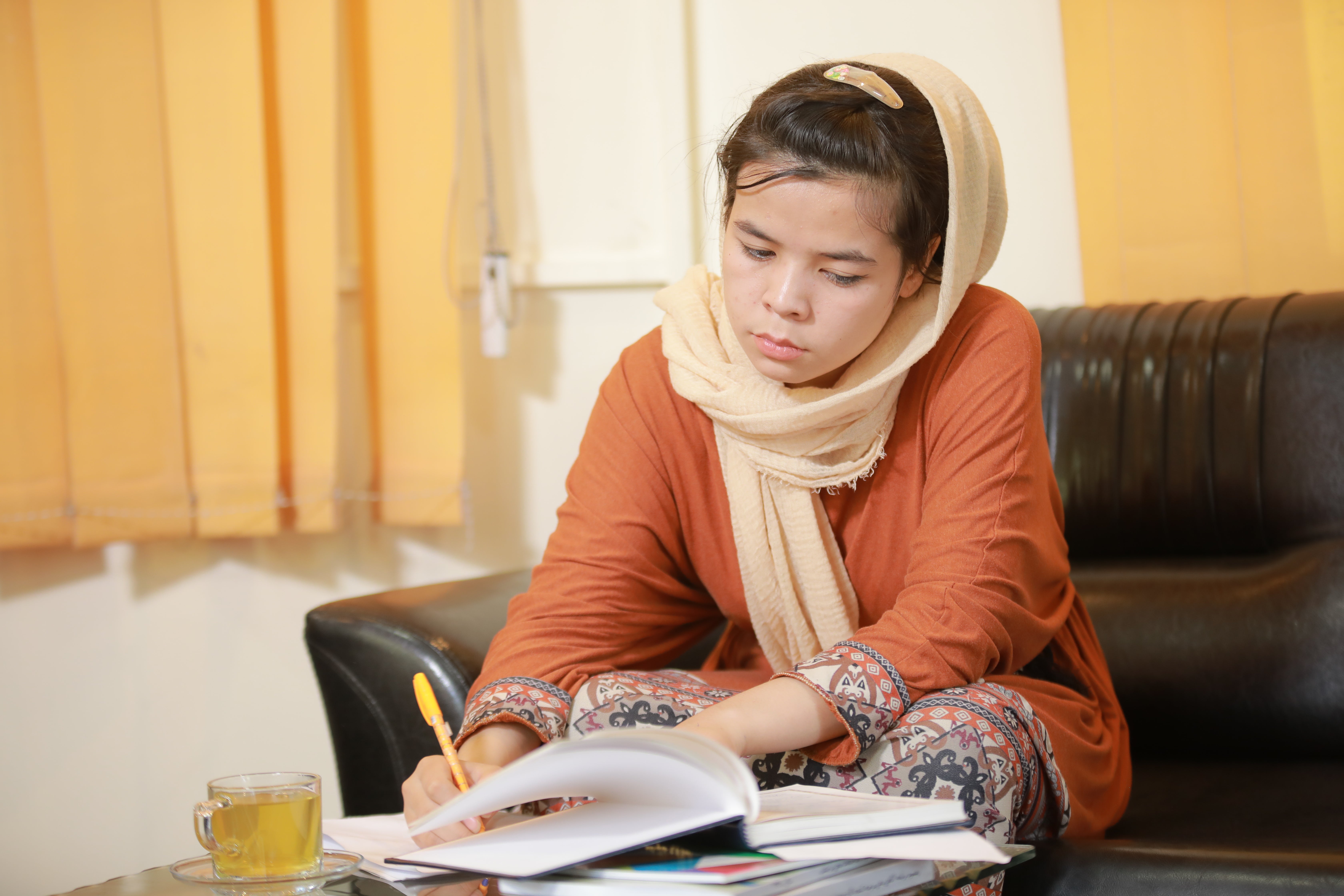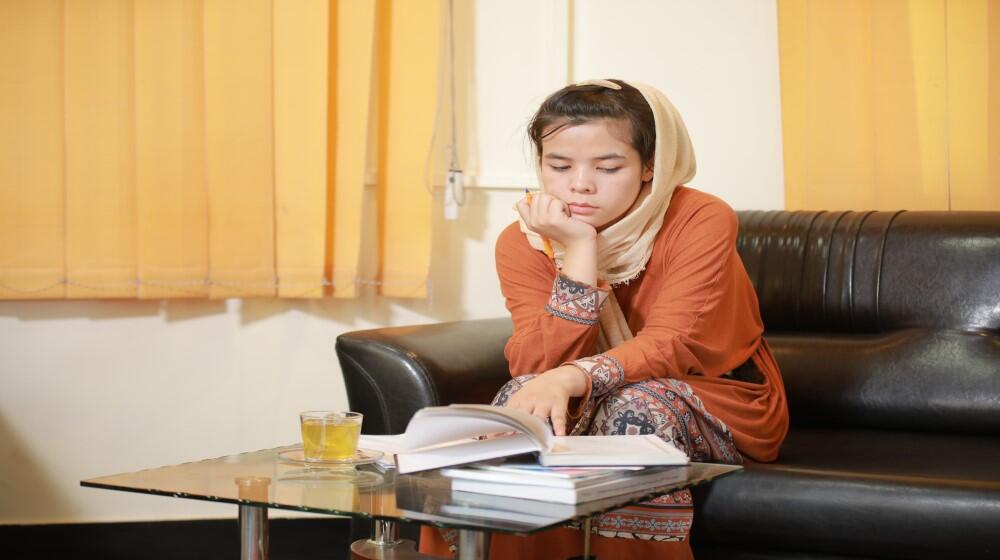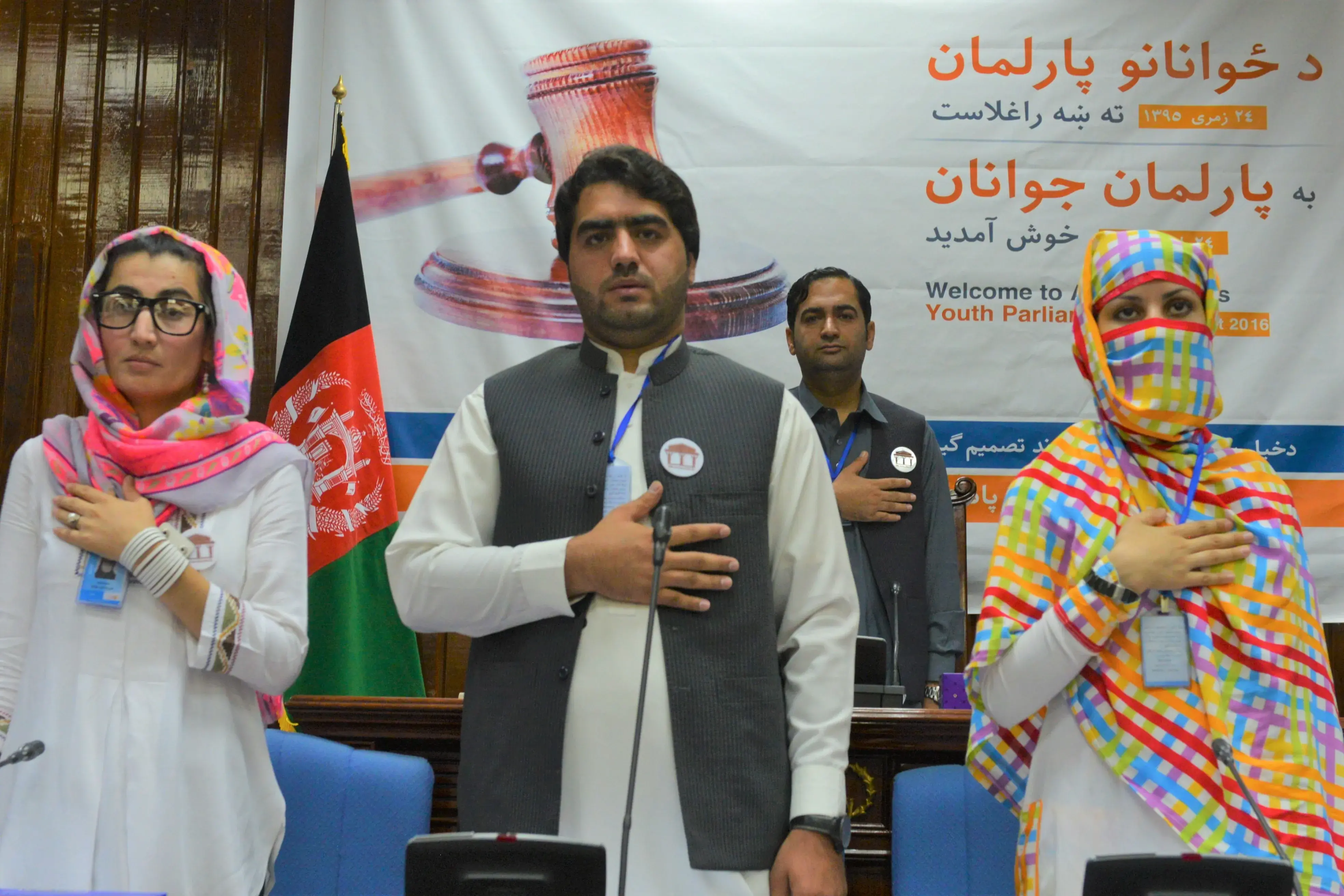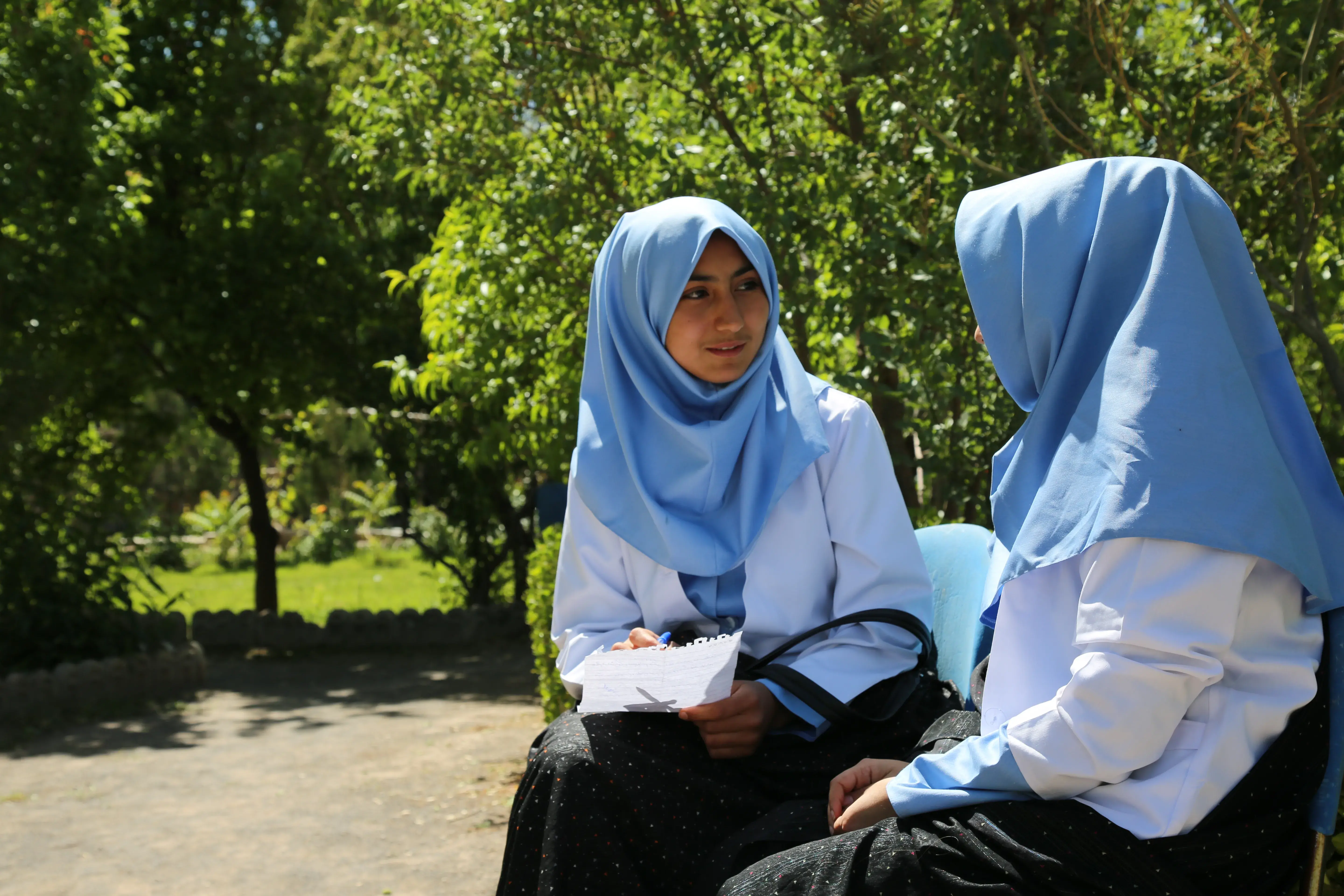Kabul, Afghanistan – One year after the Taliban takeover, 17-year-old Mursal Fasihi is still in disbelief that she cannot go back to school and her hopes of becoming a doctor are now uncertain.
“It is not right that they are deciding for us, ordering us to go with mahram [a male companion], that we should hide our faces, and stop going to school,” Ms Fasihi said, referring to the Taliban’s series of directives that effectively restrict women and girls from participating in public life.

The last time Ms. Fasihi saw school was when she took her final examination for 11th grade in July 2021. She has not returned to school since then. In August, the Taliban swept across Afghanistan, which ended with the fall of Kabul on 15 August. Some of her friends were able to leave Afghanistan and are now continuing their education overseas.
“I really miss my friends, my teachers and my school. My school was a great place but now I can’t go there,” she remarked, sadly.
To fill her time and still feel productive, Ms. Fasihi joined the Youth Peer Educators Network (Y-PEER), a regional initiative led by and for youth, supported by UNFPA. Y-PEER focuses on building young people’s life skills to deal with the challenges that they face. She joined a training last July and is now one of the 25 trainers for Y-PEER in Afghanistan.
The training opened her eyes to various issues young Afghans face on a daily basis, especially among young girls, such as early marriage and early pregnancy. The unprecedented poverty resulting from the economic crisis that came with the Taliban’s return to power in Afghanistan has brought to the fore discussions about child marriages.
Ms. Fasihi knows that early marriage often results in early pregnancy. “It is sad because how can a child bring another child into this world and raise them?” she pointed out. “At our age, we are just children. We should be studying, aiming for great things. It’s not time for us to get married yet.”
Despite the seemingly hopeless situation, Ms. Fasihi believes that “when the dark cloud passes, we will see a bright morning.”
“I hope that young girls will not give up. It is ok to be scared, it is ok to cry, but giving up is not an option. I hope they will continue learning in any way they can. Insha Allah, maybe someone will help us, or the schools will reopen,” she said. “Our bright morning will come.”





